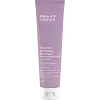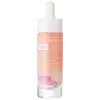What's inside
What's inside
 Key Ingredients
Key Ingredients

 Benefits
Benefits

 Concerns
Concerns

 Ingredients Side-by-side
Ingredients Side-by-side

Homosalate 10%
Skin ConditioningBenzophenone-3 6%
UV AbsorberEthylhexyl Salicylate 5%
UV AbsorberButyl Methoxydibenzoylmethane 3%
UV AbsorberOctocrylene 2%
UV AbsorberWater
Skin ConditioningButylene Glycol
HumectantPEG-8
HumectantPolyethylene
AbrasiveSilica
AbrasiveDimethicone
EmollientPicrasma Excelsa Wood Extract
AstringentSodium Ascorbyl Phosphate
AntioxidantRetinyl Palmitate
Skin ConditioningTocopherol
AntioxidantTocopheryl Acetate
AntioxidantTitanium Dioxide
Cosmetic ColorantAloe Barbadensis Leaf Juice
Skin ConditioningBentonite
AbsorbentMethyl Glucose Sesquistearate
EmollientAcrylates/C10-30 Alkyl Acrylate Crosspolymer
Emulsion StabilisingSodium Polyacrylate
AbsorbentKaolin
AbrasiveEthylhexylglycerin
Skin ConditioningDisodium EDTA
Sodium Hydroxide
BufferingPhenoxyethanol
PreservativeChlorphenesin
AntimicrobialHomosalate 10%, Benzophenone-3 6%, Ethylhexyl Salicylate 5%, Butyl Methoxydibenzoylmethane 3%, Octocrylene 2%, Water, Butylene Glycol, PEG-8, Polyethylene, Silica, Dimethicone, Picrasma Excelsa Wood Extract, Sodium Ascorbyl Phosphate, Retinyl Palmitate, Tocopherol, Tocopheryl Acetate, Titanium Dioxide, Aloe Barbadensis Leaf Juice, Bentonite, Methyl Glucose Sesquistearate, Acrylates/C10-30 Alkyl Acrylate Crosspolymer, Sodium Polyacrylate, Kaolin, Ethylhexylglycerin, Disodium EDTA, Sodium Hydroxide, Phenoxyethanol, Chlorphenesin
Water
Skin ConditioningButyloctyl Salicylate
Skin ConditioningOctocrylene
UV AbsorberButyl Methoxydibenzoylmethane
UV AbsorberBis-Ethylhexyloxyphenol Methoxyphenyl Triazine
Skin ConditioningDimethicone
EmollientEthylhexyl Triazone
UV AbsorberGlycerin
HumectantPhenylbenzimidazole Sulfonic Acid
UV AbsorberDicaprylyl Carbonate
EmollientPanthenol
Skin ConditioningJojoba Esters
EmollientHydroxyacetophenone
AntioxidantPolyacrylate Crosspolymer-6
Emulsion StabilisingHydroxyethyl Acrylate/Sodium Acryloyldimethyl Taurate Copolymer
Emulsion StabilisingHelianthus Annuus Seed Extract
Skin ConditioningSodium Hydroxide
BufferingAllantoin
Skin ConditioningTocopherol
AntioxidantCarnosine
Skin ConditioningGluconolactone
Skin ConditioningEthylhexylglycerin
Skin ConditioningSodium Ascorbyl Phosphate
AntioxidantTetrasodium Glutamate Diacetate
Sodium Hyaluronate
HumectantAloe Barbadensis Leaf Juice Powder
Skin ConditioningPolysorbate 60
EmulsifyingSorbitan Isostearate
EmulsifyingAcacia Decurrens Extract
AstringentPolyglycerin-3
HumectantPantolactone
HumectantWater, Butyloctyl Salicylate, Octocrylene, Butyl Methoxydibenzoylmethane, Bis-Ethylhexyloxyphenol Methoxyphenyl Triazine, Dimethicone, Ethylhexyl Triazone, Glycerin, Phenylbenzimidazole Sulfonic Acid, Dicaprylyl Carbonate, Panthenol, Jojoba Esters, Hydroxyacetophenone, Polyacrylate Crosspolymer-6, Hydroxyethyl Acrylate/Sodium Acryloyldimethyl Taurate Copolymer, Helianthus Annuus Seed Extract, Sodium Hydroxide, Allantoin, Tocopherol, Carnosine, Gluconolactone, Ethylhexylglycerin, Sodium Ascorbyl Phosphate, Tetrasodium Glutamate Diacetate, Sodium Hyaluronate, Aloe Barbadensis Leaf Juice Powder, Polysorbate 60, Sorbitan Isostearate, Acacia Decurrens Extract, Polyglycerin-3, Pantolactone
 Reviews
Reviews

Ingredients Explained
These ingredients are found in both products.
Ingredients higher up in an ingredient list are typically present in a larger amount.
Also known as Avobenzone, this ingredient is a chemical sunscreen filter that provides protection in the UV-A range.
Avobenzone is globally approved and is the most commonly used UV-A filter in the world.
Studies have found that avobenzone becomes ineffective when exposed to UV light (it is not photostable; meaning that it breaks down in sunlight). Because of this, formulations that include avobenzone will usually contain stabilizers such as octocrylene.
However, some modern formulations (looking at you, EU!) are able to stabilize avobenzone by coating the molecules.
Avobenzone does not protect against the UV-B range, so it's important to check that the sunscreen you're using contains other UV filters that do!
The highest concentration of avobenzone permitted is 3% in the US, and 5% in the EU.
Learn more about Butyl MethoxydibenzoylmethaneDimethicone is a type of synthetic silicone created from natural materials such as quartz.
What it does:
Dimethicone comes in different viscosities:
Depending on the viscosity, dimethicone has different properties.
Ingredients lists don't always show which type is used, so we recommend reaching out to the brand if you have questions about the viscosity.
This ingredient is unlikely to cause irritation because it does not get absorbed into skin. However, people with silicone allergies should be careful about using this ingredient.
Note: Dimethicone may contribute to pilling. This is because it is not oil or water soluble, so pilling may occur when layered with products. When mixed with heavy oils in a formula, the outcome is also quite greasy.
Learn more about DimethiconeEthylhexylglycerin (we can't pronounce this either) is commonly used as a preservative and skin softener. It is derived from glyceryl.
You might see Ethylhexylglycerin often paired with other preservatives such as phenoxyethanol. Ethylhexylglycerin has been found to increase the effectiveness of these other preservatives.
Octocrylene protects skin from sun damage. It absorbs UV-B with peak absorption of 304 nm. It is a common sunscreen ingredient and often paired with avobenzone, a UVA filter. This is because octocrylene stabilizes other sunscreen ingredients by protecting them from degradation when exposed to sunlight. Octocrylene is a photostable ingredient and loses about 10% of SPF in 95 minutes.
Octocrylene also acts as an emollient, meaning it helps skin retain moisture and softens skin. It is oil-soluble and hydrophobic, enhancing water-resistant properties in a product.
Those who are using ketoprofen, a topical anti-inflammatory drug, may experience an allergic reaction when using octocrylene. It is best to speak with a healthcare professional about using sunscreens with octocrylene.
The EU allows a maximum of these concentrations:
Learn more about OctocryleneSodium Ascorbyl Phosphate is a form of Vitamin C. It is the salt of ascorbic acid.
This ingredient is more gentle than ascorbic acid. It is also more stable when exposed to light and oxygen.
Vitamin C helps reduce redness, improve skin texture, reduce the effects of aging, reduce the visibility of dark spots, and brighten skin.
Your skin uses Vitamin C to produce collagen and collagen production plays a role in having a strong skin barrier and plump skin. As an antioxidant, this ingredient also helps reduce the signs of aging such as fine-lines and wrinkles.
VItamin C helps brighten skin by blocking the process of skin darkening.
In a 2011 study, Sodium Ascorbyl Phosphate was found to have antibacterial properties. This may help treat acne.
Read more about other types of Vitamin C:
Learn more about Sodium Ascorbyl PhosphateSodium Hydroxide is also known as lye or caustic soda. It is used to adjust the pH of products; many ingredients require a specific pH to be effective.
In small amounts, sodium hydroxide is considered safe to use. However, large amounts may cause chemical burns due to its high alkaline.
Your skin has a natural pH and acid mantle. This acid mantle helps prevent harmful bacteria from breaking through. The acid mantle also helps keep your skin hydrated.
"Alkaline" refers to a high pH level. A low pH level would be considered acidic.
Learn more about Sodium HydroxideTocopherol (also known as Vitamin E) is a common antioxidant used to help protect the skin from free-radicals and strengthen the skin barrier. It's also fat soluble - this means our skin is great at absorbing it.
Vitamin E also helps keep your natural skin lipids healthy. Your lipid skin barrier naturally consists of lipids, ceramides, and fatty acids. Vitamin E offers extra protection for your skin’s lipid barrier, keeping your skin healthy and nourished.
Another benefit is a bit of UV protection. Vitamin E helps reduce the damage caused by UVB rays. (It should not replace your sunscreen). Combining it with Vitamin C can decrease sunburned cells and hyperpigmentation after UV exposure.
You might have noticed Vitamin E + C often paired together. This is because it is great at stabilizing Vitamin C. Using the two together helps increase the effectiveness of both ingredients.
There are often claims that Vitamin E can reduce/prevent scarring, but these claims haven't been confirmed by scientific research.
Learn more about TocopherolWater. It's the most common cosmetic ingredient of all. You'll usually see it at the top of ingredient lists, meaning that it makes up the largest part of the product.
So why is it so popular? Water most often acts as a solvent - this means that it helps dissolve other ingredients into the formulation.
You'll also recognize water as that liquid we all need to stay alive. If you see this, drink a glass of water. Stay hydrated!
Learn more about Water